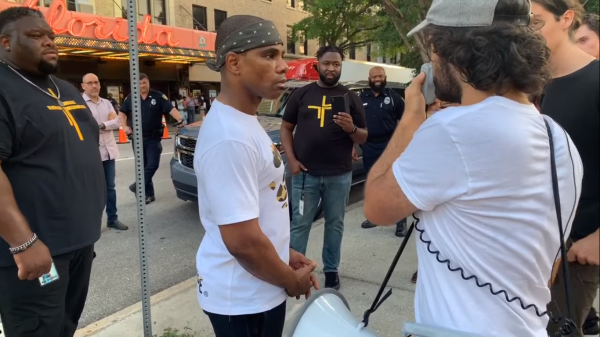There are many testimonies of women of God waiting on a spouse wanting to do things God’s way. However, men in the same position have not been shown as much as women have. Maybe this is because there are more women than men, but the lack of seeing single men in the forefront living for God can very easily harm the women living for God. It’s easy to become discouraged, angry, and bitter.
That anger, bitterness, and discouragement can become a trap that causes a woman to be stuck. This is why Satan loves to paint the picture that no men are standing for God in the area of sexual purity and obedience to God in the season of singleness.
This is also why we have to be intentional about what we hear and place our focus on. Many men are standing for God. I have some personal friends that I walk with and we encourage one another. Dee-1 just released an album called, “God and Girls.” On the album, he shares about how he’s had to turn certain girls down because they weren’t on the same page with him as far as honoring and walking with God.
Suffering for righteousness simply means to forego something that is needed at the moment for a greater purpose. Yeah, I could use a spouse and give my hormones some relief, but there is a greater priority of being able to honor God with my spouse and walk before the Lord in his purpose for my life. There is a compromise of self-seeking pleasure that has found its way into the body of Christ, and those who don’t yield to it often find themselves single a lot longer, but women of God aren’t the only ones.
Dee-1 not only shared about his standard, but he speaks about protecting and standing with real women of God. There is some real encouragement on that album. His song “Narrow Road” that features Christon Gray, discusses his decision to be sold out for Christ even in his desire for a godly wife.
Anthony Evans, son of Pastor Tony Evans is also one who has been single for an extended time as a man. I know at least for men of God who were virgins when they got married; It isn’t as talked about, but we aren’t alone as women standing in obedience to God. The enemy wants to make it look that way to get us down, but we gotta focus on the truth and not what things look like.
I’ve been in an awesome place for some years now as far as my contentment in the Lord as a single woman. I thought I was content before, but it’s gone to a whole other level. A huge part of that is the many trials and tribulations I’ve been through where God’s shown me that he is with me. It certainly doesn’t hurt to listen to albums dedicated to women, who are like me, such as Dee-1’s. He’s even got Johnathan Mcreynolds on one track where they discuss looking for a godly girl. Can you believe it? Women like you and me being celebrated? Yes! I’m here for it!
The next time the enemy tries to torment you making you afraid that obeying God will mean that you will always stand alone; tell the devil he is a liar and re-shift your focus on the truth.










